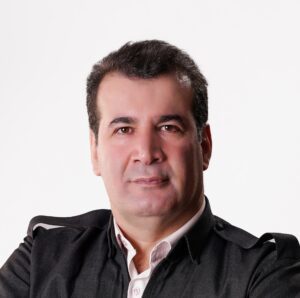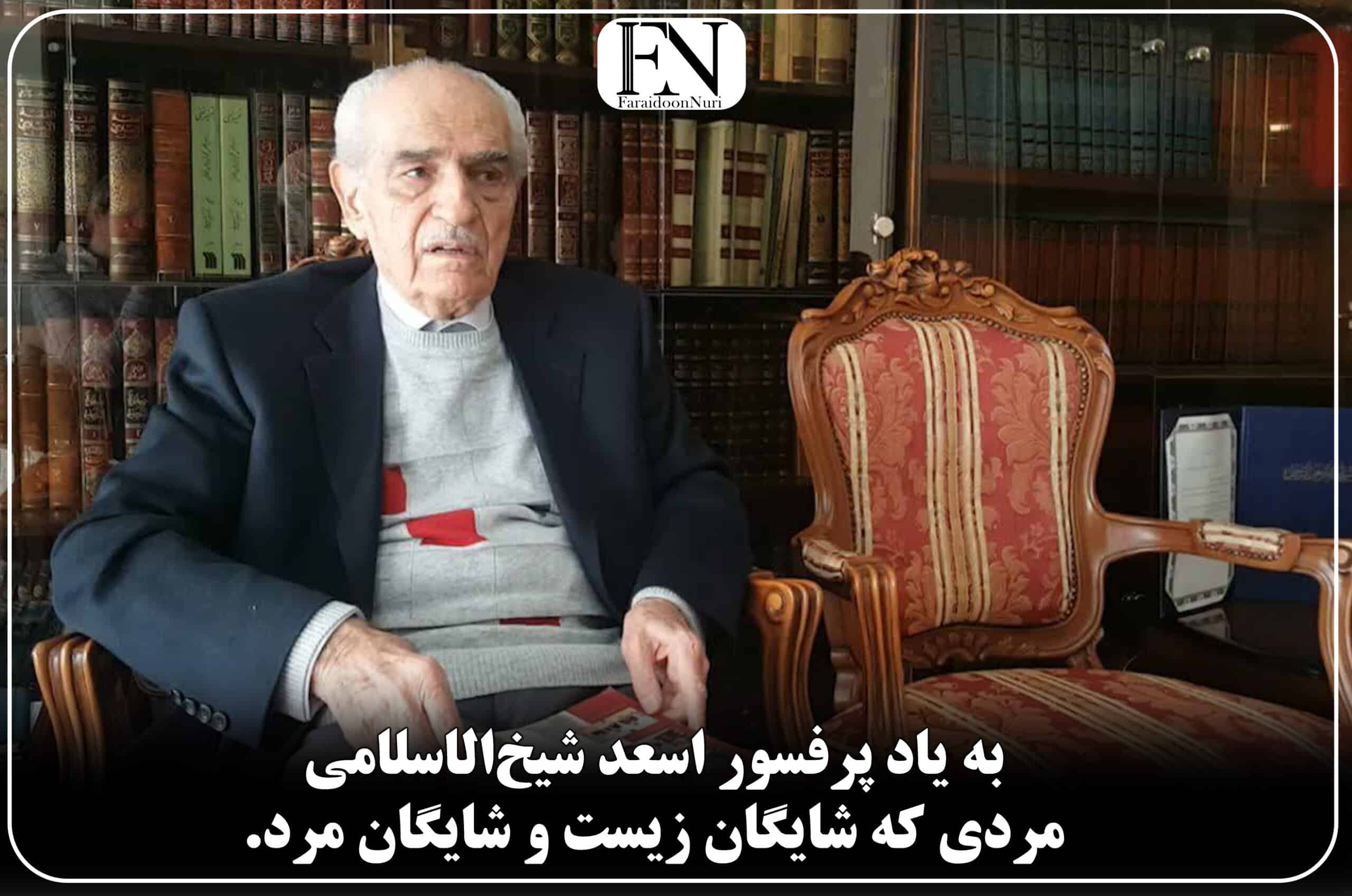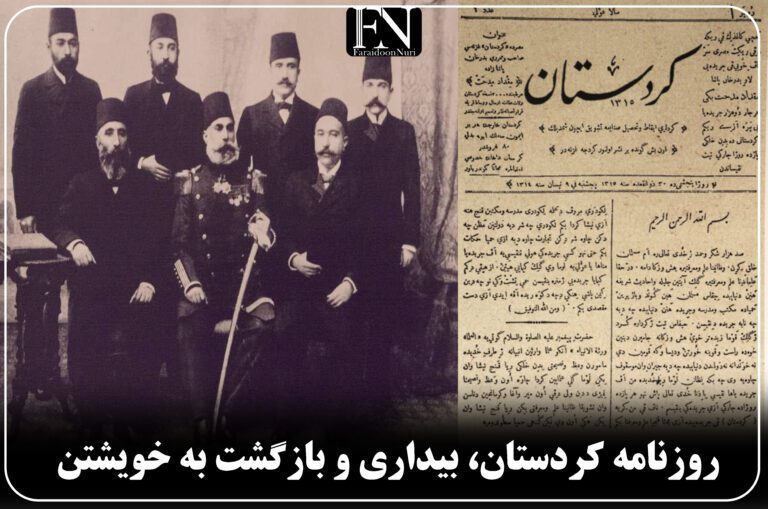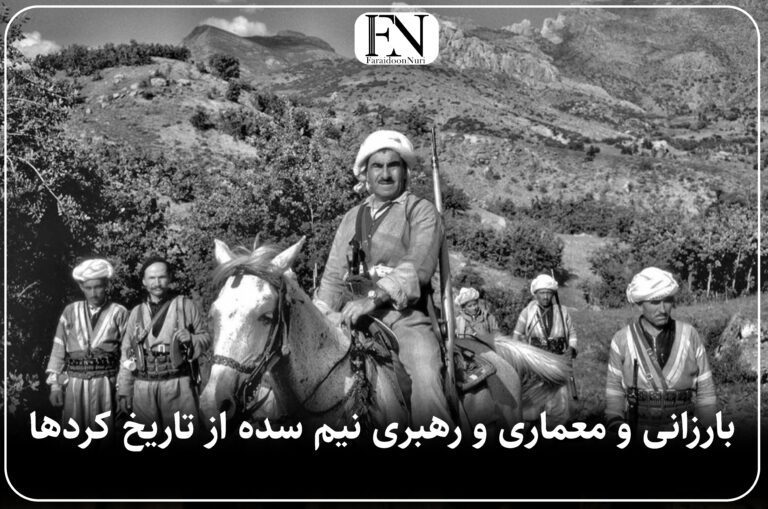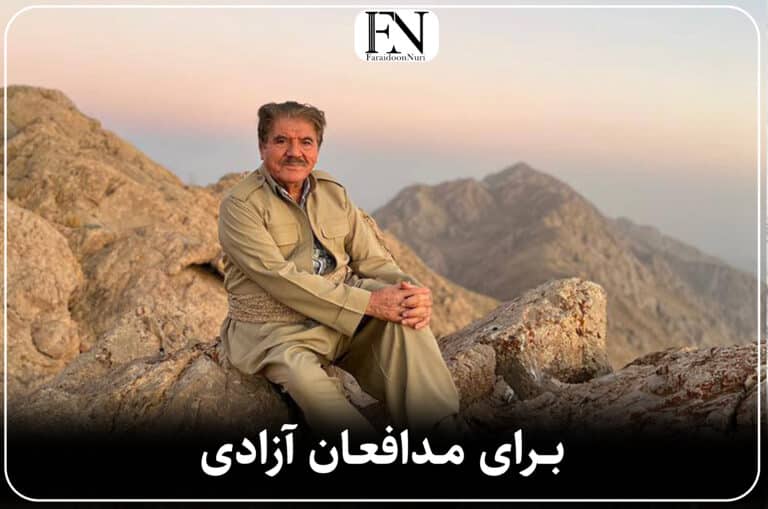### My 50-Year Friendship with Him
“My friendship with him spans 50 years. His father was a very noble man, respected by everyone, both Shia and Sunni, and served as a role model in the university. Interestingly, every beautiful and commendable quality in the father was also present in the son.”
This valuable and scholarly testimony by Professor Azartash Azarnoush is about the late Dr. Asad Sheikh-Islami.
### Early Life and Education
Seyed Asad Sheikh-Islami was born in 1932 in Sanandaj, the son of Seyed Mohammad and the grandson of Seyed Abdulaziz Sheikh-Islami Kurdistani, from a well-known and scholarly family in Kurdistan. His maternal grandfather was Haj Sheikh Shakarullah Sanandaji, a prominent figure in the Naqshbandi order. His presence represented a convergence of the Sufi and Sharia traditions in the Ardalan region.
Professor Asad Sheikh-Islami completed his primary and secondary education in Sanandaj. Following his father’s advice, he studied religious subjects under notable scholars such as Molla Abdullah Kateb and Molla Mahmoud Mufti Dashtai. Later, his pursuit of modern sciences led him to the University of Tehran, where he studied Persian literature and theology (Islamic sciences). He remarked, “I entered the Faculty of Literature in 1950, coinciding with Dr. Mossadegh’s rise to power, and graduated when he left office.” During this period, he continued his religious studies under his father and ultimately received certification in issuing religious rulings and teaching religious sciences from the distinguished scholar Molla Mahmoud Mufti of Kurdistan. He then entered the Faculty of Theology at the University of Tehran in the mid-1950s and obtained his Ph.D. in 1965 in Islamic jurisprudence and principles of Islamic law. His doctoral thesis, “Islam’s Relations with Religious Minorities Throughout History,” reflected his youthful concerns for human rights and justice.
### Academic Career and Contributions
From 1965, Asad Sheikh-Islami began teaching at the Faculty of Theology at the University of Tehran, continuing until the end of his prolific life. His dedication and academic rigor elevated him to the highest academic rank (full professor), making him a source of inspiration and lasting influence for his community, particularly for Shafi’i jurisprudence students and Kurdish clerics. He faced many challenges in this path. As he said, “From 1969 to 1989, I was the sole lecturer in Shafi’i jurisprudence at the Faculty of Theology at the University of Tehran. Overall, interest in the Faculty of Theology was low, and religious inclinations were weak. This was partly due to the extensive activities and influence of communist groups in the university.”
In 1973-74, he received a one-year study opportunity and went to the United States to pursue his academic interests at Harvard Law School and the Faculty of Theology, enriching his knowledge. His scholarly work, “Comparison of Inheritance in Shafi’i Jurisprudence with U.S. Civil Laws,” resulted from this academic retreat. Two years later, he traveled to the United Kingdom to attend the World Congress of Religions and the “Seminar on Divine Religions at the University of Lancaster,” where he shone brightly. He again went to the U.S. in 1990 to participate in a seminar on inheritance laws and compare them with Islamic inheritance laws, presenting his scholarly article at Harvard Law School.
### Scholarly Works and Legacy
Authoring dozens of scholarly articles and several prestigious academic books in his specialized field, such as “Theological Issues from the Perspective of Ash’ari and Mu’tazili Theologians,” “Marriage and Its Termination in Sunni Schools of Thought,” “Personal Status: Inheritance, Will, and Guardianship,” “A Brief Survey of Mu’tazilite and Ash’ari Theological Thoughts,” and “Commentary on the Poems of Seyed Abdulaziz (his grandfather) Sheikh-Islami Kurdistani,” are parts of this distinguished scholar’s legacy.
The establishment of two separate and independent academic disciplines for Shafi’i and Hanafi jurisprudence, with Shafi’i jurisprudence at the Faculty of Theology and Islamic Studies at the University of Tehran and Hanafi jurisprudence at Mashhad University, resulted from the efforts of the then Supreme Cultural Council, led by Asad Sheikh-Islami. This initiative allowed hundreds of young intellectuals and enthusiasts to pursue academic studies in these significant Islamic schools of thought, contributing to lasting services and publications.
Current distinguished professors of the Department of Theology and Shafi’i Jurisprudence at the University of Tehran, such as Dr. Jalalizadeh, Dr. Omidi, and Dr. Ziaei, are among the students and legacies of this prominent scholar. They will, God willing, continue his path. The approval and conduct of scientific level determination exams for Sunni clerics to grant them equivalent degrees and the impact on their academic and livelihood lives are other lasting contributions in his illustrious career. Unfortunately, as far as the author of these lines knows, those who benefited from this privilege have not shown due appreciation for this honorable and unassuming service by Professor Sheikh-Islami, which is not unusual in our difficult times.
### Contributions to Sunni Jurisprudence Education
The formulation of scientific syllabuses related to the teaching of Sunni jurisprudence in the country’s universities is another legacy of Asad Sheikh-Islami and his esteemed colleagues and students. The excellence and scholarship of this enduring figure result from the mentorship of distinguished teachers, whose names deserve mention here. He acknowledged his debt to greats such as Professor Mustafa Zalmi, Seyed Mohammad Sheikh-Islami Kurdistani (his father), a distinguished professor at the University of Tehran, the eminent scholar Molla Mahmoud Mufti Kurdistani, Professor Abdul Hamid Badi-uz-Zamani Mehi Sanandaji, Professor Badi-uz-Zaman Forouzanfar, Dr. Mohammad Mohammadi, a renowned professor and head of the Faculty of Theology and Islamic Studies at the University of Tehran, Professor Pourdavoud, Professor Hassan Taqizadeh, Professor Mahmoud Shahabi, Professor Jalaleddin Homai, Dr. Abdolhossein Zarrinkoub, the esteemed and capable Professor Zabihollah Safa, and Professor Hassan Khatibi, all of whom are bright and lasting stars in the firmament of Iranian knowledge and culture.
### Final Years and Death
This esteemed scholar passed away on Wednesday, January 1, 2019, at 89 in Tehran. His body was transferred to his birthplace in Sanandaj and laid to rest in Salavatabad after a funeral at the University of Tehran.
### Legacy and Personality
Asad Sheikh-Islami was a rare individual of our time, possessing qualities like scientific humility, tolerance, perseverance in the field of knowledge, good conduct, inspiration to students, and avoidance of noise and fame. He lived a worthy life and died a worthy death, exemplifying the enduring poem:
“Before you and me, many have been and left their marks
On the wall of life with such memories.
This melody of love will remain after you and me
As long as the wind and time endure.”
— Professor Shafi’i Kadkani
